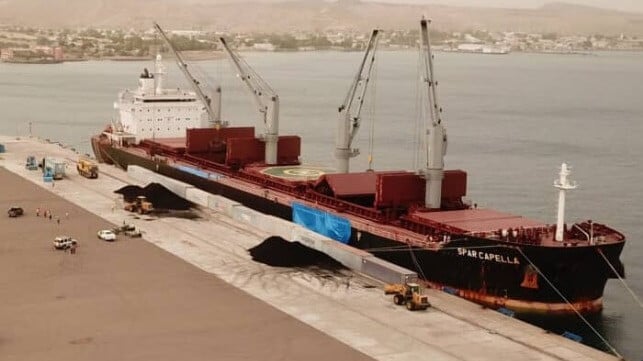Djibouti Offers Port to Ethiopia in Hopes of Easing Regional Tensions

The eastern African nation of Djibouti is proposing a new solution to the ongoing regional tensions as landlocked Ethiopia seeks to develop access to the ocean and global trade. Djibouti has offered to grant Ethiopia the use of the Port of Tadjoura which is in the northern part of the country to gain direct access to the Gulf of Aden as an alternative to an agreement for Ethiopia to gain access to a port in Somaliland in exchange for recognition of the breakaway semi-autonomous state.
Djibouti Foreign Minister Mahamoud Ali Youssouf said the growing tensions in the Horn of Africa are becoming a “major source of concern,” and the move to grant Ethiopia exclusive use of Tadjoura could help to calm the situation. Ethiopia announced plans for the agreement with Somaliland at the beginning of 2024 which prompted a series of negotiations led by Turkey.
Ethiopia, which has been landlocked since Eritrea seceded in 1993, has been trying various means to secure access to the ocean. It currently is dependent mostly on Djibouti’s main port, which provides for up to 90 percent of Ethiopia’s international trade. Ethiopia’s determination to have direct access to the sea has inevitably fueled tensions in the Horn of Africa region.
The Port of Tadjoura was opened in 2017 and developed with the participation of an Italian group Technital. It is located to the west of Tadjoura, which is one of the oldest towns in Djibouti and today is the country’s third largest with a population of approximately 45,000. The government of Djibouti reports it invested $90 million to develop the port.
The port is ideally located to serve the hinterland and can accommodate ships weighing up to 65,000 dwt. It has two berths and approximately 1,400 feet of berth with a depth of 39 feet. It has a RoRo terminal and was designed to handle up to four million tons of potash annually along with access to the North Tadjourah-Bahlo corridor highway.
The offer by Djibouti is seen as a strategic step to neutralize the emerging influence of Somaliland, a country that Djibouti feels could become a major threat to its merchant maritime interests. Somaliland’s Port of Berbera is seen as a challenge to Djibouti Port following the signing of a deal with Ethiopia granting 12 miles of shoreline to Ethiopia. Berbera’s growing influence is evident after it ranked as the best performing port in the World Bank’s Container Port Performance Index in the East and the Horn of Africa region. Berbera was ranked at position 106 up from 144 in 2022 while Djibouti plunged to position 379 from 26.

that matters most
Get the latest maritime news delivered to your inbox daily.
“We are offering 100 percent management for a port in the north, a new corridor that is already built,” said Youssouf in an interview with the BBC. He added that although Djibouti is a stable country and quite safe, growing tensions in the neighboring countries are a major source of concern.
The tensions have been amplified by Egypt’s decision to start supplying arms to Somalia, a development that comes just weeks after the signing of a security agreement between the two nations in early August. Egypt is embroiled in a dispute with Ethiopia over the construction of a $4 billion hydroelectric dam on the Blue Nile, a key tributary to the Nile River that Egypt fears will have a devastating effect on water flow downstream.
